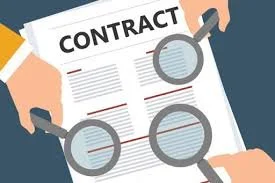Conveyancing is the legal process of transferring ownership of property from one party to another, governed by key legislation in Victoria, including the Sale of Land Act 1962 (Vic) and the Transfer of Land Act 1958 (Vic). A licensed conveyancer handles essential tasks such as preparing and reviewing contracts, conducting due diligence on the property title, coordinating settlement, and lodging documents with Land Use Victoria.
However, it's important to understand what conveyancing is not. It does not include offering financial advice, such as guidance on taxes, mortgages, or investment strategies. These services must be sought from qualified professionals in those fields, such as accountants or financial advisers. Similarly, a conveyancer is not authorised to mediate property disputes or provide building inspections.
A good conveyancer ensures that all legal requirements are met with accuracy and efficiency, while a great conveyancer goes beyond by proactively identifying potential issues and offering tailored, strategic advice. If your conveyancer is communicative, transparent, and educates you throughout the process, you are likely receiving high-quality service.
Read More




















